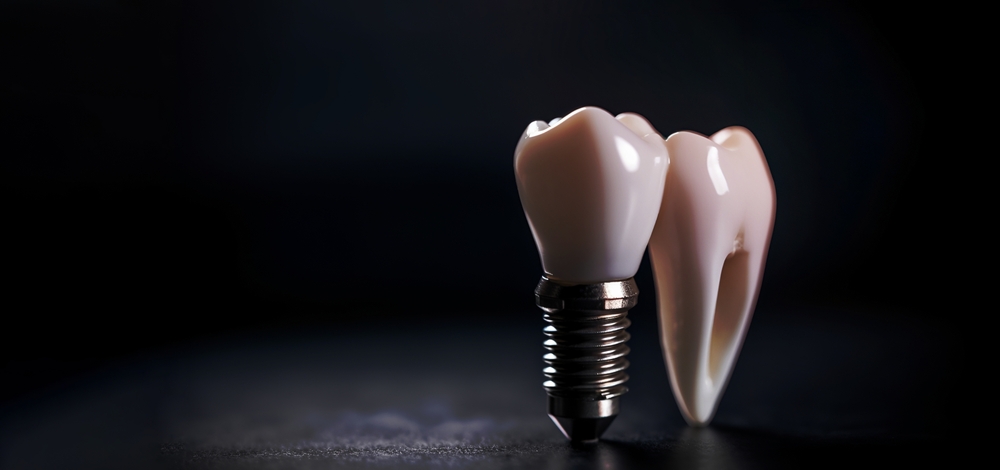12 Common Dental Implant Aftercare Questions

Dental implants offer many life-changing benefits to both health and appearance. As they are permanently embedded in your mouth, they help to avoid the problems other dental restorations come with, like the slippage of traditional dentures. These advantages are one of the reasons so many people visit my dental office in Orland Park, IL, to ask questions about implant dentistry.
If you plan properly for implant aftercare, you should experience minimal discomfort following your surgery. I will provide in-depth instructions on how to limit any discomfort and understand how to get the most out of your dental implant investment. Read on as I discuss answers to common implant dentistry aftercare questions.
Two Questions About Bleeding and Swelling

Will I Experience Heavy Bleeding?
Some bleeding after surgery is normal, but it is unlikely that you will experience heavy bleeding. Because an implant is inserted directly into the gums and jawbone, there is no open wound left to heal as there is with tooth extraction.
What About Severe Swelling?
Some swelling and bruising immediately following the procedure is common. Swelling will become visible on the day after the procedure and reach a peak two or three days later.
Swelling can be minimized with the use of an ice pack held on the face, over the area where the surgery was performed.
Three Questions About the Post-Surgical Week

How Much Pain Will I Feel the First Week?
Most patients report no more than mild discomfort after dental implant surgery.
I may recommend taking a painkiller before anesthesia wears off, and continued use for a few days after surgery.
Most likely, over-the-counter pain medication should be enough to address any discomfort you may experience.
If after several days pain does not subside or if it increases in intensity, contact my Orland Park office.
When Can I Eat and Drink Normally?
Eating and drinking may prove challenging for the first several days after the procedure, but you should do your best to remain nourished. Healthy eating leads to effective healing.
To help protect yourself, you should try to eat soft foods and chew on the opposite side of the implant site in the days immediately following your procedure.
Generally, most patients return to their normal eating habits seven to ten days after surgery.
How Much Rest Will I Need?
Activities on the day of surgery should be minimized. Physical activity can prolong bleeding. You should be able to slowly return to strenuous physical exertion a week after your procedure.
Two Questions About Rare Implant Issues

What Should I Do if My Implant-Supported Restoration Gets Damaged?
Dental crowns, dental bridges, and dentures can all be repaired, reattached, or replaced.
If your restoration gets damaged for any reason, you should reach out to me immediately. I can evaluate the issue and determine the best course of action to get you back on the road to optimal appearance and oral health.
Are There Any Problems or Warnings Signs I Should Be On the Lookout For?
There are various issues that you should be on the lookout for. This is by no means saying that any of these will happen, just that if they do, you will be ready to spot the signs and reach out for important early intervention.
When it comes to the gums, be on the lookout for recession, swelling, tenderness, or overly sensitive teeth. If any of these occur, I can try to eliminate the causes so your gums stay healthy enough to support implants.
If your implant loosens for any reason, reach out to me so I can tighten things up.
Three Questions About Healing and Cleaning

Can I Speed Healing Up?
Yes. You can expedite your healing process by making sure you avoid touching the implant site until it has healed, either with your tongue or with your fingers. Disturbing the implant site can cause bleeding.
Similarly, other actions that cause physical contact to the implant site can prolong the healing process, like drinking through straws, spitting, or smoking.
What Should I Do for Long-Term Implant Care?
Care for dental implants is just like care for natural teeth. Once the gums have healed and the replacement tooth or teeth have been placed, you should brush twice a day and visit our Orland Park dental office once every six months for checkups.
If this and the aftercare steps above are observed, you should see long-term success with the implants and your new smile.
Do I Need to Buy Any Special Cleaning Products?
There are various specialized cleaning products I can recommend so you can best protect your dental implants and their restorations.
You may want to use:
- An interproximal toothbrush to properly clean the implant and abutment, as well as to reach the space between the implant and restoration
- Superfloss instead of regular floss, because superfloss has a stiffened end that helps you reach under your implant-supported bridge
- A water flosser to remove hard-to-reach plaque and debris surrounding your implants and restorations
Two Questions About Results

How Long Will My Implant and Restoration Last?
With proper care, your dental implant should last the rest of your life. This makes a dental implant arguably the best dental investment you could possibly make.
A crown that is supported by a dental implant can last as long as 15 years, at which point the crown will require replacement. Dentures or dental bridges that are placed on top of dental implants can last for up to 20 years.
Even if you replace the implant restoration, the implant itself will not need to be replaced.
Will My Final Results Look Natural?
Yes, absolutely.
I deeply understand that suffering from missing teeth is a potentially embarrassing situation that my patients want to move on from forever.
To help ensure that restorations look as natural as possible, I provide implant-supported bridges, crowns, and dentures that are crafted from advanced materials designed to mimic natural teeth. I also color-match restorations to make sure they blend into smiles.
Request Your Dental Implant Consultation
I have been providing quality dental care for patients of every age for over a decade. To finely hone my skills, I completed advanced training in Surgical Implant Placement, Bone Grafting, and Implant Restoration at the world-renowned Misch Implant Institute.
I am here to answer all of your dental implant questions and explain what to expect at your procedure. Reach out now to talk about how you can benefit from dental implants at my practice in Orland Park, IL.
 About Yamen Akhras, DDS
About Yamen Akhras, DDS
Dr. Yamen Akhras completed training in dental implants from the Misch Institute and the Urban Regeneration Institute. He specializes in treating gum disease, placing implants, and bone and gum grafting.
Read Dr. Akhras's Full Bio | All Posts by Dr. Akhras

